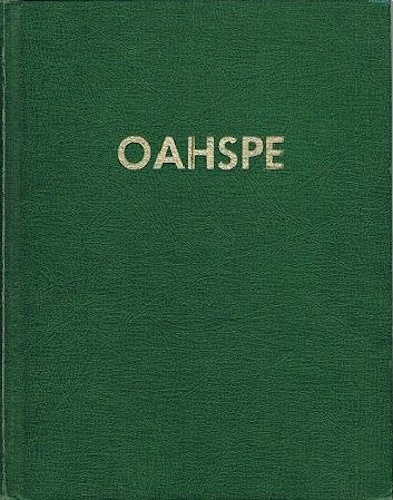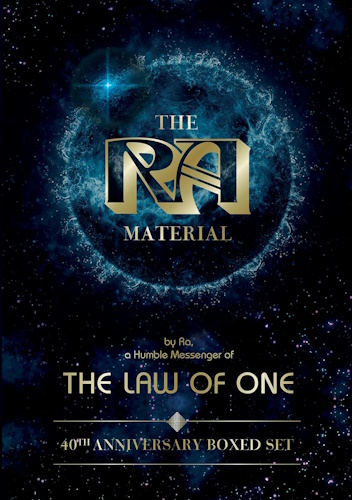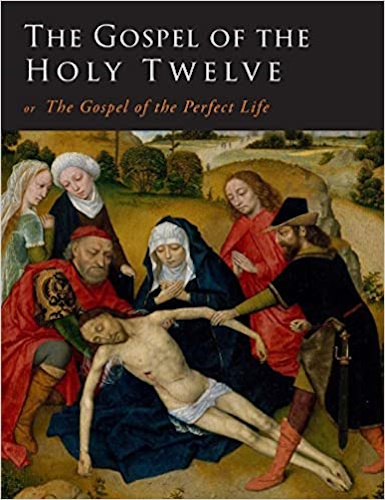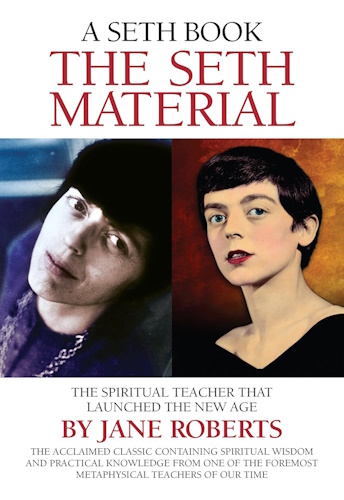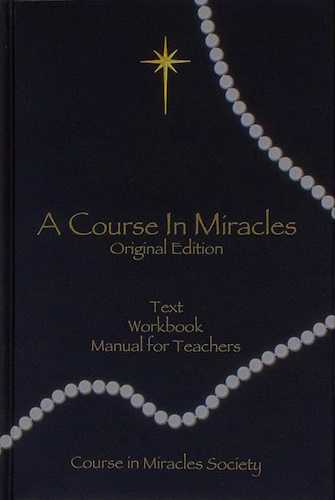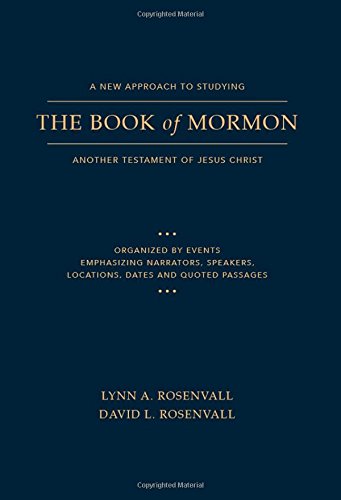
![]()
![]()
Book of Divinity
Chapter XV
1. IN Mouru, God and his officers were using all their strength and wisdom to provide for the removal of his hosts to Craosivi. The demand for builders, surveyors and carriers, with power, was so great that God determined to send trumpeters through the kingdoms of Ahura, the false, asking for volunteers.
2. For this purpose he sent twelve otevans in different directions, some even going through the city of Ctusk, Ahura's capital, and they proclaimed aloud what they wanted. And it came to pass that in less than one year the otevans gathered out of Ahura's kingdoms seven million angels capable of grade seventy, who were able to fill the places required.
3. This was the most damaging blow of all to Ahura's kingdoms, for he thus lost the wisest and most powerful of his people. And this news went like fire before the wind. His sub-Gods began to revolt against him, claiming their own kingdoms. Many of them openly preached in their heavenly places against him, accusing him of falsehood and of being a mere pretender, with little power.
4. Nevertheless, he had great power in the name Ahura'Mazda, for he was believed in heaven, to be the same God, even I'hua'Mazda, that inspired Zarathustra. And mortals also, living and dying in this belief, could not be convinced otherwise. And when their spirits left their mortal bodies, Ahura's angels took them to the heavenly city of Ctusk, where they beheld its glory, shining and magnificent. And they took them in sight of Ahura's throne, but not near it, and they were obliged to crawl on their bellies a long distance even for this purpose. And the throne was kept radiant with perpetual fire. Then they were made to re-crawl their way back again, until out of the city. After that it was said unto them: Behold, we have shown thee Ahura'Mazda's heavenly city and the glory of his throne. Himself thou canst not behold till thou hast performed the service which is required of all souls entering heaven. Nor canst thou come again to this city, most brilliant, majestic, till thou hast served under thy Lords and masters thy allotted time. After that thou shalt come here and dwell in peace and rest and happiness forever!
5. And these spirits knew not otherwise, nor would they believe, if told; and they thus willingly made slaves of themselves hundreds of years, carrying provender, or doing drudgery to certain masters who were again serving the Lords and the sub-Gods, going through the same rites and ceremonies in heaven as they were accustomed to on earth.
6. But Jehovih provided for all things, wiser than the wisest Gods. He created His creations with a door on every side, full of glory and freedom. Out of earth and atmosphere conjoined, He created animal and vegetable kingdoms. And He created the trees of the earth and the flesh of animals out of these two things, the dust of the earth and the air of heaven.
7. With this possibility created He
p. 303
them; that in death their corporeal elements should go to their respective places, where they belong. But this possibility created the Creator, that in the death of a vegetable and in the death of an animal, when the atmospherean part flieth upward, that it should carry with it a small possible part of the dust of the earth, and it thus doeth His bidding.
8. With this possibility created He His creations: that the earth giveth away of its substance into atmospherea hundreds of years; and the fields become barren, and produce not; and certain animals become barren and produce not, and their races go out of existence. And He created man subject to the same forces; and when the earth is in the giving-off period, behold, man ceaseth to desire of the earth; he crieth out to his Father in heaven for the light of heaven.
9. With this possibility created the Creator the earth and the heavens above the earth: a time for the earth to give off its substance, the which flieth upward hundreds of years; and a time for the earth to receive from the atmosphere, surcharged from the regions far away, an addition of substance, for hundreds of years. And when it is thus receiving, it is called the time of a'ji, because that which falleth (condenseth) is aji.
10. When a'ji cometh upon the earth, the drujas come also. The days of the darkness of earth are their delight; their harvest is in the rich falling a'ji; it suiteth their laziness and their inclination to bask about. They become in those days like an over-fed animal; and to their masters, the false Gods, they become worthless, for they derive their existence without labor. A'ji is their delight; but they are also like a foolish man drinking wine with delight, who continueth till his delight turneth to madness. So the drujas feast and disobey their masters; and then they become boisterous and unruly, full of disorder and evil intent, defiant, believing themselves to be Gods and Goddesses. Like a beggar with a pocket full of money, who lacketh discipline and determineth to glut his passions to the fill, so is it with the drujas in the time of a'ji.
11. Thus Ahura counted without Jehovih; in his heart he had conceived great power in his kingdom; but the long a'ji told upon his heavenly places seriously. His sub-Gods no longer paid him tribute, to support in ease and glory his five millions of heralds, his five millions of musicians, his five millions of ceremonious paraders, giving and providing for them constantly new costumes and new palaces and decorations.
12. So, first one and then another of his sub-Gods revolted; and Ahura was powerless to enforce obedience, for so dense was a'ji that whoever Ahura sent forth only reveled in sumptuous feastings. And it came to pass that, in years after a'ji sat in, when over six hundred of Ahura's sub-Gods had dissolved all connection with him, and of the two hundred yet remaining, who were situated close about Ctusk, Ahura's heavenly place, not ten of them could be relied upon in emergency.
13. At this time Ahura resolved upon regaining his lost dominions, and it was like a man having lost heavily at the games, resolving to win all or lose all. Accordingly, Ahura set his workmen to building parade ships, fifty thousand. He said unto his remaining sub-Gods: Behold I will traverse the heavens in such magnificence and glory that all angels and mortals shall fall down and worship me. And surely, too, this time of a'ji must come to an end; and in that day I will remember those that have been faithful unto me. And I will also remember, with a curse, those who have been unfaithful to me.
14. For fourteen years the workmen were building Ahura's fleet, and yet they had built but thirty thousand ships. For so great was the desertion of his skilled men that failure met him on all sides. But with these thirty thousand ships Ahura determined to travel throughout all the atmospherean heavens.
15. Accordingly, he called together his heralds, five millions; his musicians, five millions; his masters of rites, five millions; his marshals, ten millions; his captains, twenty millions; his generals, three millions; his Lords, one million, and of his sub-Gods, one hundred and fifty, with their attendants, twenty millions; his bearers of trophies, ten millions; his light makers, ten millions; his waterers, ten millions; his torch-bearers, five millions; his body-guard, thirty millions. Besides these there were the bearers of banners, the proclaimers, the road makers, the surveyors, the directors, and so on, more than fifty millions. And yet the traveling hosts, one hundred millions, and waiters for them, one hundred millions. In all there were upward of four hundred millions of spirits that went within the thirty thousand ships, and the ships were not full.
16. And the ships traveled in the form of a pyramid, but not touching one another, and yet fastened together.
p. 304
And the base of the pyramid was four hundred miles wide every way, and four hundred miles high. And the belt of light around the pyramid was a thousand miles in diameter every way; and it was ballasted to run within fifty miles of the earth's surface.
17. Thus sat out Ahura for a whole year's cruise in atmospherea; and wherever he went he proclaimed himself thus: Ahura'Mazda, the Creator! The Only Begotten Son of the Unknowable! Behold, I come; I, the Creator! I have come to judge heaven and earth! Whoever is for Me I will raise up to Nirvana; whoever is against Me I will cast into hell.
18. The pyramid reflected light in its travel; and Ahura's emissaries on earth used this as a testimony that all things were about to come to an end; the earth to be cast out, and heaven and hell to be filled up with spirits, each to its place, according to its obedience or disobedience to Ahura'Mazda.
19. On the other hand, Ahura's revolted sub-Gods laughed at him; and, as for the over-fed and debauched drujas, they mocked at him. So it came to pass that when Ahura visited his revolted sub-Gods in their kingdoms, instead of regaining their allegiance, he was sent on his way with hisses and groans. And yet never since the earth and her heavens were, had there been such great show and pageantry.
20. Before Ahura had visited half the kingdoms in atmospherea he foresaw the futility of his project; the probable downfall of his own mighty kingdoms began to break in on his heart. Enthusiasm for his name was on the wane, and all his magnificence had failed to restore him to what he had been.
21. Now, whilst he was absent from Ctusk, the capital of his kingdoms, he had deputed Fravaitiwagga to reign in his stead, and to maintain the order and glory of his throne. Fravaitiwagga was a deserter from God's Haienne colony in Haraiti, where he had been educated two hundred years, and was expert in primary surveys and buildings, but impatient for advancement beyond his capacity. He had now been with Ahura three hundred years, learning little, but feasting and frolicking, being a great flatterer of Ahura, and given to long speeches and flowery words.
22. Whilst Fravaitiwagga was on the throne, and after the departure of Ahura on his excursion, there came to him one Ootgowski, a deserter from Hestinai in Zeredho, who had been in Ahura's service a hundred and fifty years, but banished from his heavenly place by Ahura on account of gluttony and drunkenness, since which time he had been a wandering spirit, dwelling sometimes in one kingdom and then in another, and oft visiting the earth and gaining access to the oracles, and even to mortal priests, where he represented himself, sometimes as Ahura'Mazda, sometimes as God, sometimes a favorite Lord, sometimes Fragapatti, and Thor, and Osire, and, in fact, any name he chose, issuing decrees and commandments to mortals, then flying away to return no more.
23.Ootgowski came to Fravaitiwagga and he said unto him: Greeting to thee, O God, in the name of Ahura'Mazda! Behold, I am sent to thee in great haste by our Creator, Ahura; who commandeth thy presence in the province of Veatsagh, where is holden a mighty Council with Ahura's re-affiliated sub-Gods. What preferment Ahura'Mazda hath fashioned for thee I know not. To this Fravaitiwagga answered as followeth, to wit:
24. Who are thou, and from what kingdom? And above all, why art thou come without heralds and attendants? To this Ootgowski answered, saying: Behold me! Knowest thou not me? I am Haaron, God of Sutuyotha! Who else could come so quickly? Who else but I runneth fearlessly unattended betwixt the kingdoms of the Gods?
25. Fravaitiwagga had been drunk many days, and was so dazed with the pretentious Ootgowski that he took for granted that he was indeed Haaron, a great friend to Ahura. Fravaitiwagga called his Council together and appointed Semmes to be God in his stead; and so Fravaitiwagga departed in a arrow-ship, with messengers, for Veatsagh, which lies in an entirely different direction to where Ahura was traveling.
26. Semmes, the deputized God of Ctusk, was faithful to his office for four days, and then proclaimed recreation until the trumpet call from the throne. And in this interval the debauchee, Ootgowski, obtained access to the floor of the inner chamber, and seduced Semmes to accompany him, carrying off all the costly gems and jewels of the throne! And when without the capital, they embarked with their plunder in an arrow-ship to some unknown region.
27. For many days the members of the Council waited for the trumpet call, but not hearing it, resolved to learn the cause. And after diligent
p. 305
search, not finding Semmes, but discovering that the throne had been plundered of its valuables, they were thrown into great confusion. In two days after this the throne was destroyed, the Council divided and gone, and the heavenly city of Ctusk turned to riot and plunder.
28. And there were in Ctusk and near about, upward of four thousand million angels with no God, nor leader, nor any head whatsoever. Thus it came to pass that Jehovih took the throne from Ahura, as had been prophesied.
29. And whilst this was going on, Ahura was away with his pyramid fleet, being discomfited wherever he went. But in two hundred and twelve days after his departure on his journey, messengers came to him and told him what had happened in Ctusk.
30. Ahura gave orders to sail at once for his capital; which was done, and his pyramid fleet hastened with all possible power. Suffice it, in a few days he was back in Ctusk, a witness to the rioting and plundering going on. But the majesty and splendor of his fleet quieted the people, and restored order for the time being; nevertheless he was without a throne and without a Council.
-
Urantia Book, 44:0.11 - The Celestial Artisans
Never in your long ascendancy will you lose the power to recognize your associates of former existences. Always, as you ascend inward in the scale of life, will you retain the ability to recognize and fraternize with the fellow beings of your previous and lower levels of experience. Each new translation or resurrection will add one more group of spirit beings to your vision range without in the least depriving you of the ability to recognize your friends and fellows of former estates.
-
Princess Bride 1987 Wallace Shawn (Vizzini) and Mandy Patinkin (Inigo Montoya)
Vizzini: HE DIDN'T FALL? INCONCEIVABLE.
Inigo Montoya: You keep using that word. I do not think it means what you think it means. -
Urantia Book, 117:4.14 - The Finite God
And here is mystery: The more closely man approaches God through love, the greater the reality -- actuality -- of that man. The more man withdraws from God, the more nearly he approaches nonreality -- cessation of existence. When man consecrates his will to the doing of the Father's will, when man gives God all that he has, then does God make that man more than he is.
-
Urantia Book, 167:7.4 - The Talk About Angels
"And do you not remember that I said to you once before that, if you had your spiritual eyes anointed, you would then see the heavens opened and behold the angels of God ascending and descending? It is by the ministry of the angels that one world may be kept in touch with other worlds, for have I not repeatedly told you that I have other sheep not of this fold?"
-
Urantia Book, Foreword - 0:12.12 - The Trinities
But we know that there dwells within the human mind a fragment of God, and that there sojourns with the human soul the Spirit of Truth; and we further know that these spirit forces conspire to enable material man to grasp the reality of spiritual values and to comprehend the philosophy of universe meanings. But even more certainly we know that these spirits of the Divine Presence are able to assist man in the spiritual appropriation of all truth contributory to the enhancement of the ever-progressing reality of personal religious experience—God-consciousness.
-
Urantia Book, 1:4.3 - The Mystery Of God
When you are through down here, when your course has been run in temporary form on earth, when your trial trip in the flesh is finished, when the dust that composes the mortal tabernacle "returns to the earth whence it came"; then, it is revealed, the indwelling "Spirit shall return to God who gave it." There sojourns within each moral being of this planet a fragment of God, a part and parcel of divinity. It is not yet yours by right of possession, but it is designedly intended to be one with you if you survive the mortal existence.
-
Urantia Book, 1:4.1 - The Mystery Of God
And the greatest of all the unfathomable mysteries of God is the phenomenon of the divine indwelling of mortal minds. The manner in which the Universal Father sojourns with the creatures of time is the most profound of all universe mysteries; the divine presence in the mind of man is the mystery of mysteries.
-
Urantia Book, 1:4.6 - The Mystery Of God
To every spirit being and to every mortal creature in every sphere and on every world of the universe of universes, the Universal Father reveals all of his gracious and divine self that can be discerned or comprehended by such spirit beings and by such mortal creatures. God is no respecter of persons, either spiritual or material. The divine presence which any child of the universe enjoys at any given moment is limited only by the capacity of such a creature to receive and to discern the spirit actualities of the supermaterial world.
-
Urantia Book, 11:0.1 - The Eternal Isle Of Paradise
Paradise is the eternal center of the universe of universes and the abiding place of the Universal Father, the Eternal Son, the Infinite Spirit, and their divine co-ordinates and associates. This central Isle is the most gigantic organized body of cosmic reality in all the master universe. Paradise is a material sphere as well as a spiritual abode. All of the intelligent creation of the Universal Father is domiciled on material abodes; hence must the absolute controlling center also be material, literal. And again it should be reiterated that spirit things and spiritual beings are real.
-
Urantia Book, 50:6.4 - Planetary Culture
Culture presupposes quality of mind; culture cannot be enhanced unless mind is elevated. Superior intellect will seek a noble culture and find some way to attain such a goal. Inferior minds will spurn the highest culture even when presented to them ready-made.
-
Urantia Book, 54:1.6 - True And False Liberty
True liberty is the associate of genuine self-respect; false liberty is the consort of self-admiration. True liberty is the fruit of self-control; false liberty, the assumption of self-assertion. Self-control leads to altruistic service; self-admiration tends towards the exploitation of others for the selfish aggrandizement of such a mistaken individual as is willing to sacrifice righteous attainment for the sake of possessing unjust power over his fellow beings.
-
Urantia Book, 54:1.9 - True And False Liberty
How dare the self-willed creature encroach upon the rights of his fellows in the name of personal liberty when the Supreme Rulers of the universe stand back in merciful respect for these prerogatives of will and potentials of personality! No being, in the exercise of his supposed personal liberty, has a right to deprive any other being of those privileges of existence conferred by the Creators and duly respected by all their loyal associates, subordinates, and subjects.
-
Urantia Book, 54:1.8 - True And False Liberty
There is no error greater than that species of self-deception which leads intelligent beings to crave the exercise of power over other beings for the purpose of depriving these persons of their natural liberties. The golden rule of human fairness cries out against all such fraud, unfairness, selfishness, and unrighteousness.
